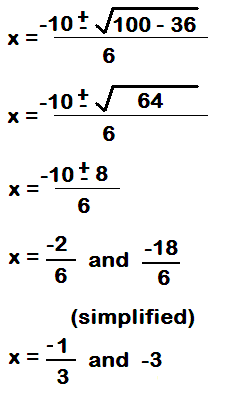Have you ever considered how much you make per hour? Although your annual salary might seem substantial, without breaking it down into hourly wages it may not reflect their true worth.
Are You Negotiating, Comparing Salary Structures or Simply Curious about Earnings Per Hour? Learning the art of converting annual to hourly pay can help you understand your worth better and make smart financial decisions.
No need to stress–this guide makes the process straightforward! Step-by-step explanations will demonstrate how an online calculator scientific can speed up this process even further.
Let’s Get Going!
Why Does Your Hourly Rate Matter?
Before diving in to the numbers, let’s discuss why hourly rate calculations are so essential.
Comparison of Two Jobs: Two jobs may offer different salaries, yet require longer hours; knowing your hourly wage helps make fair comparisons between them.
Freelancing & Side Gigs: Knowing your hourly value will be essential when freelancing, consulting or taking on extra work. Knowing this figure allows for effective rate setting.
Work-Life Balance: Are You Working Too Hard and Reaping Too Little Payback? Understanding your hourly rate might make you reconsider overtime and workload issues.
Tax & Net Income Awareness: Your net take-home pay (net income) differs significantly from your salary; therefore, understanding hourly wages helps you plan finances more effectively.
How to Convert Annual Salary to Hourly Pay
Although this process might appear complex, it’s actually quite straightforward!
Step 1: Determine Your Annual Work Hours
A full-time position generally comprises:
40 hours each week over 52 weeks = 2,080 total work hours per year
Of course, if your hours increase or decrease significantly, you must adjust the calculations accordingly.
Step 2: Divide Your Annual Salary by Work Hours
Once you know your total work hours, simply divide your annual salary by 2,080 to get an hourly rate.
Hourly Rate = Annual Salary divided by 2,080 hours in one year
Assume you make $60,000 annually.
Hourly Rate = $60,000/2,080 = $28.85 per hour.
Each hour you work is worth approximately $28.85 before taxes.
What Is Taxes and Net Income?
Your gross salary (before taxes) differs significantly from what actually lands in your bank account as net income.
With taxes, retirement contributions, and other deductions taken into account, your hourly wage actually decreases significantly.
How to Calculate Hourly Net Income
For instance, if your gross annual pay after taxes totals $48,000 per year, follow this formula:
Hourly Net Income = Net Income divided by 2,080 hours worked each hour
Hourly Net Income = $48,000 divided by 2,080 Hourly Net Income is $23.08
Even though your employer pays you $28.85 an hour in salary and deductions, only about 23.008 of that sum reaches your hands after deductions have been taken into account.
Are you in need of an instant solution for calculating your net income hourly? An online scientific calculator will instantly do the calculations!
What If Your Work Exceeds or Under 40 Hours Weekly
Not everyone works a 40-hour workweek; perhaps part-time employment or overtime payments apply instead.
Here’s how you can adjust for part-time workers: Whilst they work 30 hours each week, their annual work hours would amount to:
Now divide your salary by 1,560 hours instead of 2,080 to get your hourly rate.
Assume you work 50 hours instead of the traditional 40 hours in one week. In such an instance, extra payments for overtime would need to be calculated accordingly.
50×52 = 2,600 hours in one year
As your hours increase, so will your hourly rate as you work more for less salary.
Example of Salary with 2,600 Workhours.
Rate Per Hour = $23.08 per hour
Take note, $28.85 an hour was previously the going rate! That’s quite a reduction!
Moral of the Story? More hours don’t always equal more money.
How Knowing Your Hourly Rate Can Aid Money Decisions
Now that we understand what your hourly rate is, let’s see how it helps make better money decisions in everyday life.
Which Job Pays Better? It could be hard to tell which of two job offers is best, especially when they both promise similar wages. But, let us assume it comes down to just two.
Job A :$665,000 per year and 50 hours a week of work
Job B : $60,000 per year and 40 hours/week of labor are needed.
Which profession offers better hourly pay?
Job A: $65,000 divided by 52 hours = $25.00 an hour
Job B: $60,000 divided by 52 = $28.85 an hour
Conclusion: While Job A may pay more overall, per hour you would actually make less!
Should You Accept Extra Work? Let’s say you are contemplating taking on additional work that offers $20 an hour as extra income.
Are the extra hours worth your time? With your hourly rate at $28.85, does taking on extra work justify it?
Maybe not–you might find yourself working for less than your primary job’s hourly rate.
3 Can You Afford Working Fewer Hours?
When making the switch from full-time work to part-time employment, calculating your hourly rate helps determine your expected income and make an informed decision about switching hours of employment.
Steps for Converting Salary to Hourly Pay
To successfully convert salary to hourly pay, first find the total annual work hours (usually 2,080), then divide your salary by this total work hour count and divide by the salary per hour earned (Step 2). Step three – for take home pay instead use net income instead
Step 4: Make adjustments for part-time, overtime and additional work.
Step 5: For quick answers use an online scientific calculator!
Final Takeaway: Know Your Worth, Own Your Time!
Time is of great value and understanding its hourly value can help you negotiate better salaries, make more informed job choices, and handle finances in a more prudent manner.
So when someone asks, “How much are you making per hour?,” you’ll have an accurate response!













